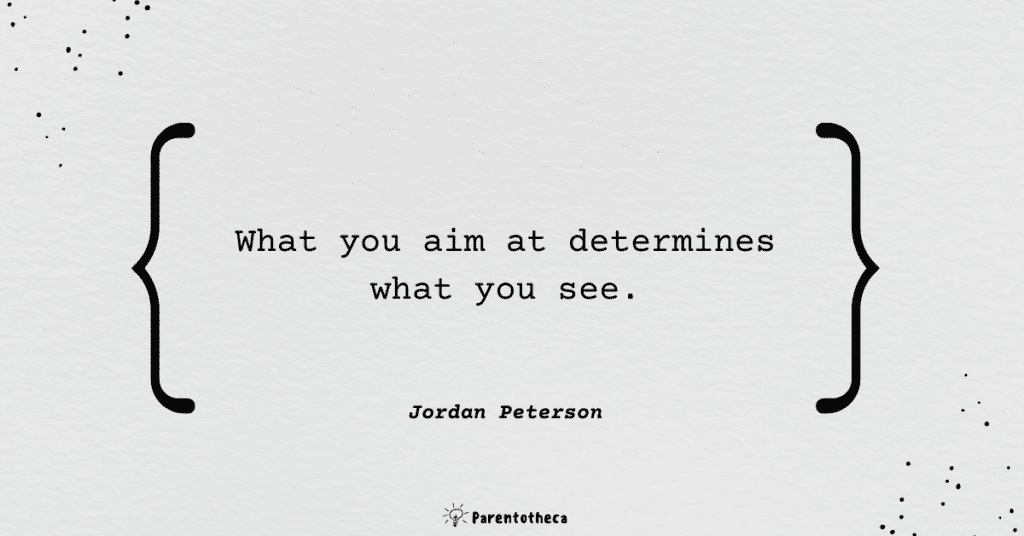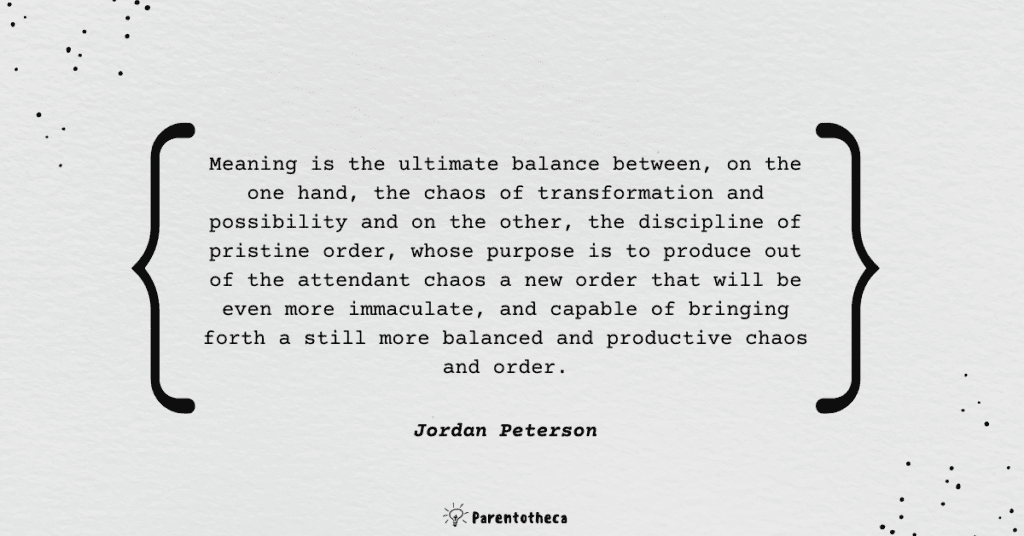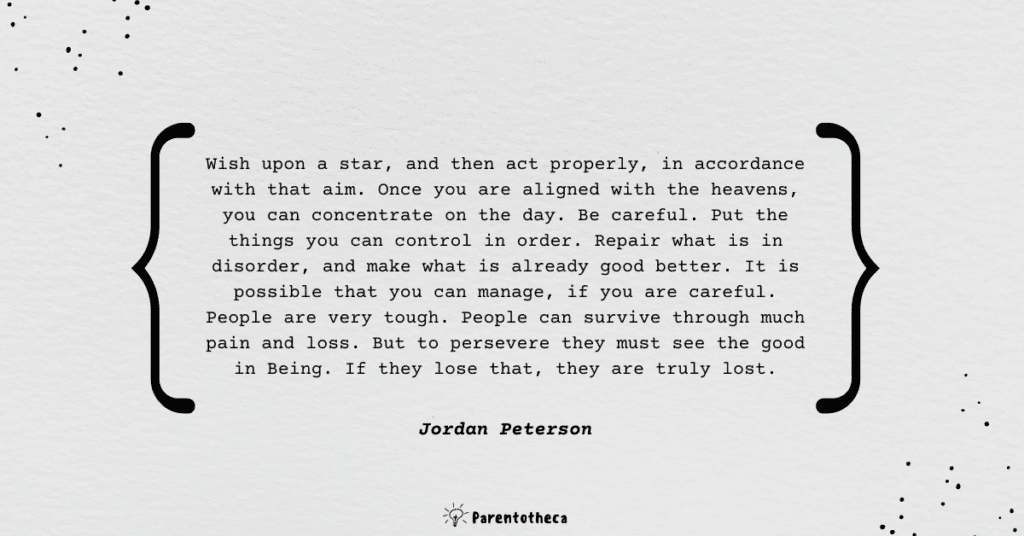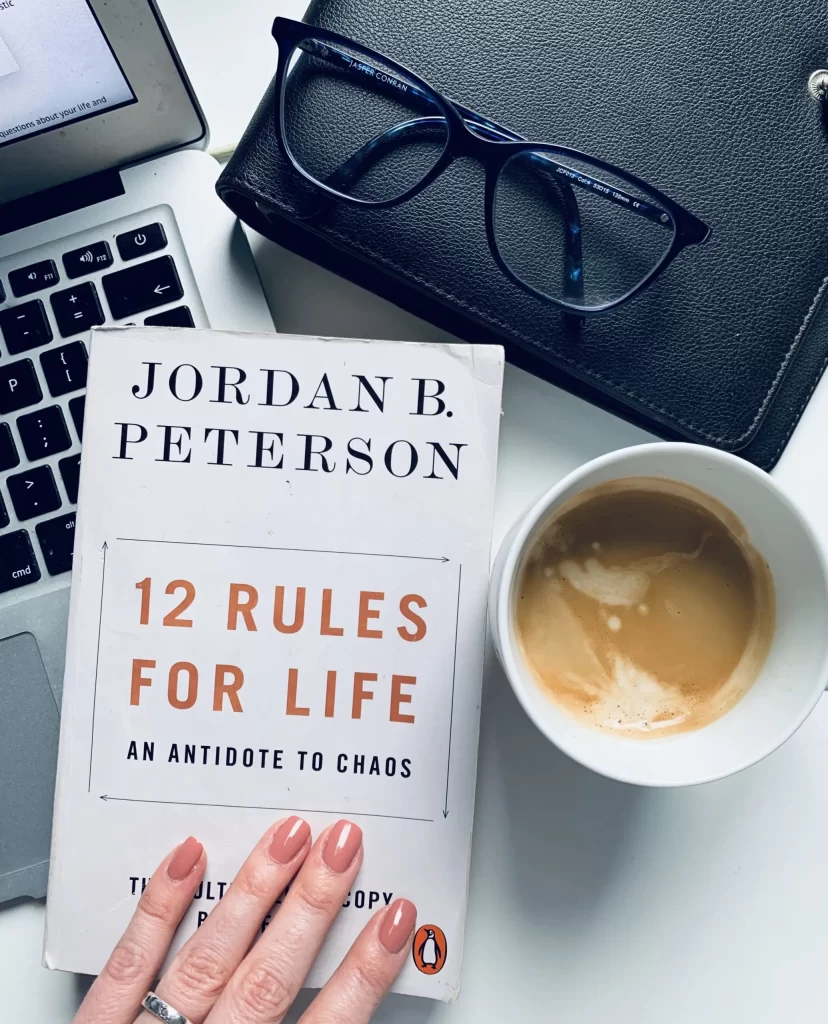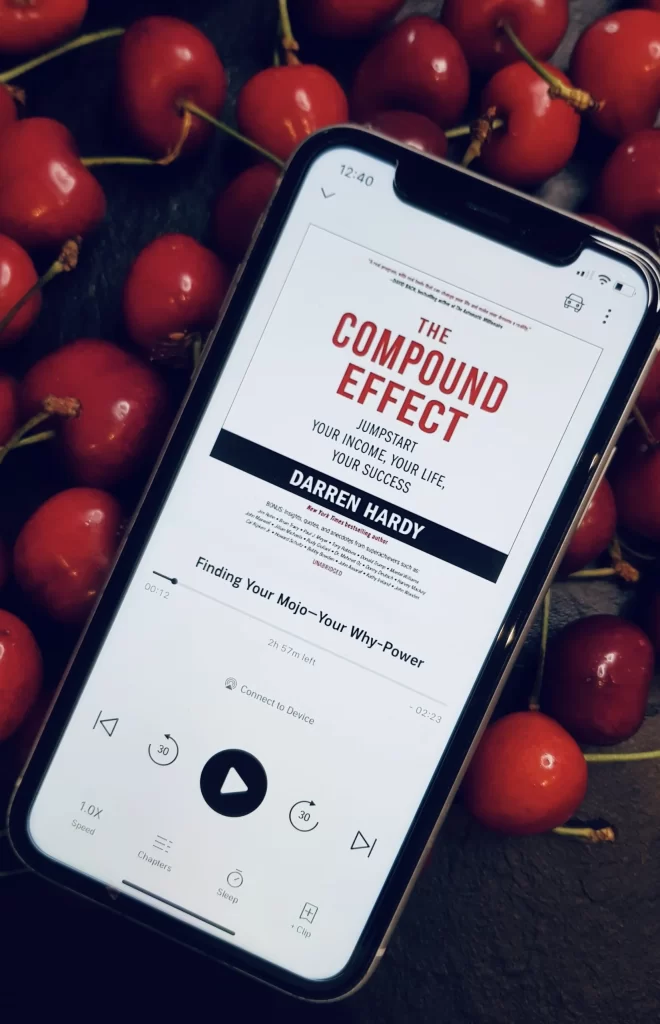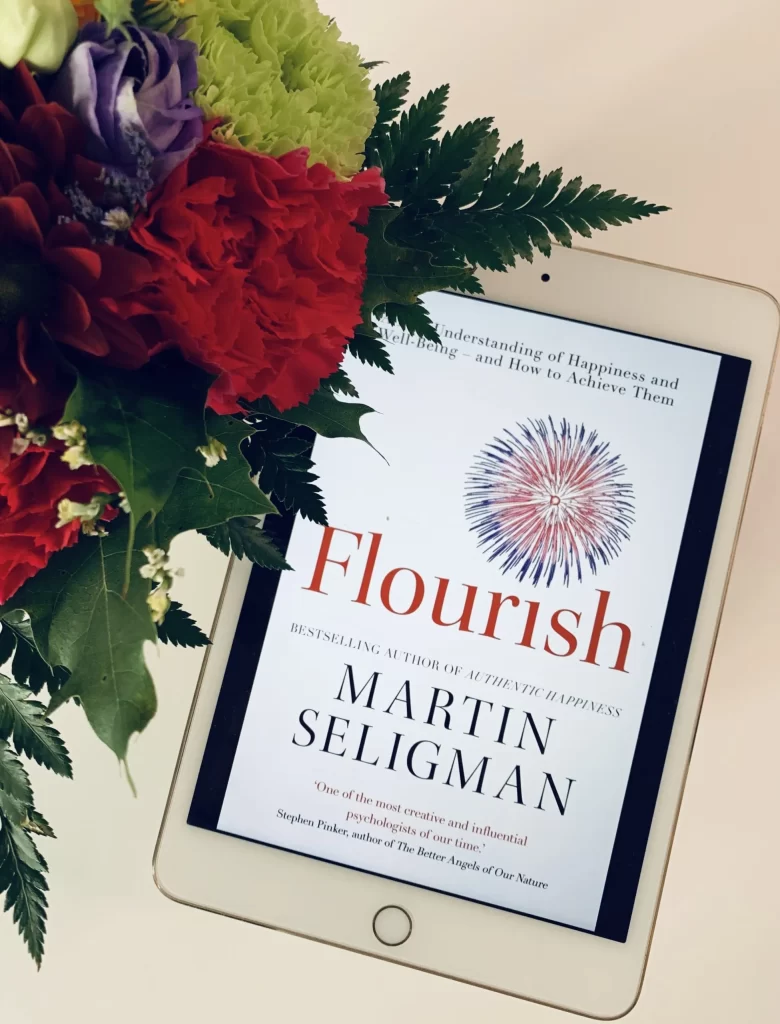 12 Rules For Life
12 Rules For Life
An antidote to chaos
Jordan B. Peterson
Penguin Books; 2019
About Jordan Peterson
After working for decades as a clinical psychologist and a professor at Harvard and the University of Toronto, Dr. Jordan Peterson has become one of the world’s most influential public intellectuals. His YouTube videos and podcasts have gathered a worldwide audience of hundreds of millions, while his book tour reached more than 250,000 people in major cities around the globe. With his students and colleagues, Dr. Peterson has published more than one hundred scientific papers, and his 1999 book Maps of Meaning revolutionized the psychology of religion. He lives in Toronto, Ontario with his family.
About The Book
“I hope that these rules and their accompanying essays will help people understand what they already know: that the soul of the individual eternally hungers for the heroism of genuine Being, and that the willingness to take on that responsibility is identical to the decision to live a meaningful life.
If we each live properly, we will collectively flourish.”
Jordan Peterson is one of the greatest minds of our time. His ideas sparked many insightful conversations at our home and greatly influenced the way we are raising our boys.
We’ve picked the book after falling in love with Jordan Peterson on YouTube (he is a super charismatic and exceptional communicator – check out his channel). And to be honest, it took me ages to finish it, as it is super intense and wonderfully thoughtful. It’s an absolutely fascinating mixture of philosophy, religion and science – all are my favourite subjects!
This book has sold more than five million copies worldwide. And I’m not surprised why ☺ That’s the kind of a self-help book that I think is actually helpful!
I really enjoyed the book and can’t recommend it enough to anyone who is aiming at living the best life (or being the best parent!). It was tough to squeeze the ideas into a short summary, so in these notes, we will briefly look at all of the 12 rules and then focus on our favourite ideas.
Let’s dive straight in.
Key Insights
The 12 Rules
“It took time to settle on a title: 12 Rules for Life: An Antidote to Chaos. Why did that one rise up above all others? First and foremost, because of its simplicity. It indicates clearly that people need ordering principles, and that chaos otherwise beckons. We require rules, standards, values—alone and together. We’re pack animals, beasts of burden. We must bear a load, to justify our miserable existence. We require routine and tradition. That’s order. Order can become excessive, and that’s not good, but chaos can swamp us, so we drown—and that is also not good. We need to stay on the straight and narrow path. Each of the twelve rules of this book—and their accompanying essays—therefore provide a guide to being there. ‘There’ is the dividing line between order and chaos. That’s where we are simultaneously stable enough, exploring enough, transforming enough, repairing enough, and cooperating enough. It’s there we find the meaning that justifies life and its inevitable suffering.”
Looking for some practical tips on how to live an extraordinary life? Here are Peterson’s 12 rules that help you to balance order and chaos (more on that later) and live happier:
Rule 1: Stand up straight with your shoulders back. Ever heard of the power pose? It changes your attitude to life. Literally. Regain your power and be a victorious lobster (more on that later)!
Rule 2: Treat yourself like someone you are responsible for helping. When you take care of yourself better, your life improves as you become better equipped to deal with chaos. Remember: you deserve good things.
Rule 3: Make friends with people who want the best for you. Some people are beyond help, and they will drag you down. Don’t hang out with them. Make sure the people around you want the best for you (it’s not easy, though – requires strength, daring, humility and courage to stand up near such a person).
Rule 4: Compare yourself to who you were yesterday, not who someone else is today. Don’t waste your time and energy comparing yourself to others. It’s futile (and drags your happiness level down). Always ask yourself: Am I better today than I was yesterday? Following James Clear’s calculations in Atomic Habits, if you can get 1% better every day for one year, you’ll end up 37 times better by the time you are done. That’s the aim.
Rule 5: Do not let your children do anything that makes you dislike them. Children need our guidance to become thriving adults. It’s our responsibility to socialise them (by the age of four!) and teach them how to behave properly. Kids need borders and limits to succeed in life (reminder: wise parenting).
Rule 6: Set your house in perfect order before you criticize the world. Life is hard. It’s easy to criticise the world and blame everyone around us for our problems. And it’s much harder to accept responsibility for our life and optimise it. That’s where we always should start.
Rule 7: Pursue what is meaningful (not what is expedient). To have meaning in your life is much better than to have what you want (even if it involves suffering). Meaning helps you to find the right balance between chaos and order. So stop looking for shortcuts and focus on a purposeful life.
Rule 8: Tell the truth—or, at least, don’t lie. Lies corrupt the world. Our meta-goal should be to “live in truth”. You can start with focusing on your personal truth – “your truth is something only you can tell, based as it is on the unique circumstances of your life”.
Rule 9: Assume that the person you are listening to might know something you don’t. Unknown makes a better friend than the known. Become an active listener and pay attention to your own ideas as well.
Rule 10: Be precise in your speech. Have a clear goal and a plan for how to reach it. Then, go and get it. Tell people around you who you are (and act out what you say). That’s the way to confront the chaos of Being.
Rule 11: Do not bother children when they are skateboarding. We need challenges to thrive in life. If we overprotect a child, he has much more chances to become a weak human. We all want our children to be strong (and we also need to be strong ourselves). Therefore, we must be willing to get out of our comfort zone and do “dangerous” things.
Rule 12: Pet a cat when you encounter one on the street. Life is full of suffering, but at the same time, it is full of beautiful moments. We should invite our mindfulness and appreciate good things in our life (like petting a cat ☺)
Here is a task for you – reflect on every rule and think of how can you consciously implement each of them into your life?
Order vs Chaos
“Order is not enough. You can’t just be stable, and secure, and unchanging, because there are still vital and important new things to be learned. Nonetheless, chaos can be too much. You can’t long tolerate being swamped and overwhelmed beyond your capacity to cope while you are learning what you still need to know. Thus, you need to place one foot in what you have mastered and understood and the other in what you are currently exploring and mastering. Then you have positioned yourself where the terror of existence is under control and you are secure, but where you are also alert and engaged. That is where there is something new to master and some way that you can be improved. That is where meaning is to be found.”
One of the book’s key themes is that we need to master our ability to manage Order and Chaos to live a great life. In fact, Chaos and Order are two of the most fundamental elements of lived experience.
Throughout the book, Peterson uses the yin and yang symbol to capture the essence of the interplay between Order and Chaos. Yang, the light part of the symbol, represents Order. Yin, the dark part, represents Chaos. A little bit of light (Order) exists in the dark (Chaos), and a little bit of dark (Chaos) exists in the light (Order). And the two are flowing into one another. That’s the essence of life.
The whole point is to evolve gracefully at the edge of that dynamic flow: to have one foot in order and security and the other in chaos, possibility, growth and adventure. To achieve this balance, Peterson advises us to focus on what we can control (follow the rules!) so we can most powerfully deal with all the stuff we can’t control.
Rule 1: Stand up straight with your shoulders back
“To stand up straight with your shoulders back is to accept responsibility of life, with eyes wide open. It means deciding to voluntarily transform the chaos of potential into the realities of habitable order. It means adopting the burden of self-conscious vulnerability, and accepting the end of the unconscious paradise of childhood, where finitude and mortality are only dimly comprehended. It means willingly undertaking the sacrifices necessary to generate a productive and meaningful reality (it means acting to please God, in the ancient language).
To stand up straight with your shoulders back means building the ark that protects the world from the flood, guiding your people through the desert after they have escaped tyranny, making your way from comfortable home and country, and speaking the prophetic word to those who ignore the widows and children. It means shouldering the cross that marks the X, the place where you and Being intersect so terribly. It means casting dead, rigid and too tyrannical order back into the chaos in which is was generated; it means withstanding the ensuing uncertainty, and establishing, in consequence, a better, more meaningful and more productive order.
So, attend carefully to your posture. Quit drooping and hunching around. Speak your mind. Put your desires forward, as if you had a right to them—at least the same right as others. Walk tall and gaze forthrightly ahead. Dare to be dangerous. Encourage the serotonin to flow plentifully through the neural pathways desperate for its calming influence.”
Peterson uses an example of a victorious lobster to illustrate this rule. Here is why. Lobsters have been on our planet for about 350 million years. (That actually seems like forever, considering that dinosaurs arrived only 65 million years ago!)
All this time, lobsters have lived within “dominance hierarchies.” Scientists noticed that the most powerful lobsters had the best “posture”, which was correlated with the amount of serotonin they produced. In short, here is the trick: good powerful posture means a higher level of serotonin and higher spots in the dominance hierarchy. And that means more happiness, a longer life span and less illness, pain and anxiety.
The same is true for humans. Therefore, to create powerful order in our lives, Peterson tells us that we should always pay attention to our posture and stand up straight with our shoulders back.
P.S.: you can try a little experiment right now – slouch, roll your shoulders forward and say to yourself: “I am happy and I am enough”. Then strike a power pose and say: “I am unhappy and miserable”. How did it feel? Power pose instantly makes you feel confident and able to take action to create the life you want.
Rule 2: Treat yourself like someone you are responsible for helping
“We deserve some respect. You deserve some respect. You are important to other people, as much as to yourself. You have some vital role to play in the unfolding destiny of the world. You are, therefore, morally obliged to take care of yourself. […]
You need to consider the future and think, ‘What might my life look like if I were caring for myself properly? What career would challenge me and render me productive and helpful, so that I could shoulder my share of the load, and enjoy the consequences? What should I be doing, when I have some freedom, to improve my health, expand my knowledge, and strengthen my body?’ You need to know where you are, so you can start to chart your course. You need to know who you are, so that you understand your armament and bolster yourself in respect to your limitations. You need to know where you are going, so that you can limit the extent of chaos in your life, restructure order, and bring the divine force of Hope to bear on the world.”
Here Peterson shares an interesting fact – people are more likely to give prescribed medication to their pets than give it to themselves. Why? Because most of us don’t have enough self-respect. And we don’t prioritise our needs.
But here is the thing: we need to take care of ourselves better to be able to care for others. That’s +1 for self-care in parenthood ☺ Children need healthy and strong parents whom they can follow. If we don’t care about ourselves, we quickly become chronically stressed and reactive to our kids (and it doesn’t help).
Therefore, we need to accept that we deserve some respect and do the little things that help us live a better life.
Rule 5: do not let your children do anything that makes you dislike them
“Children must be shaped and informed, or they cannot thrive. This fact is reflected starkly in their behaviour: kids are utterly desperate for attention from both peers and adults because such attention, which renders them effective and sophisticated communal players, is vitally necessary… Children are damaged when those charged with their care, are afraid of any conflict or upset, no longer dare to correct them, and leave them without guidance.”
Our greatest responsibility as parents is to help our children become socially acceptable. That means we need to teach them how to behave and self-regulate. And it inevitably includes discipline (and loads of patience – haha).
Peterson tells us that the first four years of a child’s life are crucial to socialising a child and teaching him the basics of emotional regulation (after that age, we can still do that, but it will require significantly more time and effort). The whole point is to help the child to become a socially desirable human being, so both peers and adults would like to interact with him. As simple as that.
That means that we should set clear boundaries and have high expectations while simultaneously being warm and supportive. That’s wise parenting in a nutshell. Children need limits and discipline to thrive in life.
And here is the set of “rules for life” for children from Peterson (love them):
“Do not bite, kick or hit, except in self-defence. Do not torture and bully other children, so you don’t end up in jail. Eat in a civilized and thankful manner, so that people are happy to have you at their house, and pleased to feed you. Learn to share, so other kids will play with you. Pay attention when spoken to by adults, so they don’t hate you and might therefore deign to teach you something. Go to sleep properly, and peaceably, so that your parents can have a private life and not resent your existence. Take care of your belongings, because you need to learn how and because you’re lucky to have them. Be good company when something fun is happening, so that you’re invited for the fun. Act so that other people are happy you’re around, so that people will want you around. A child who knows these rules will be welcome everywhere.”
So honest and so true ☺
Rule 11: Do not bother children when they are skateboarding
“When untrammelled – and encouraged – we prefer to live on the edge. There, we can still be both confident in our experience and confronting the chaos that helps us develop. We’re hard-wired, for that reason, to enjoy risk (some of us more than others). We feel invigorated and excited when we work to optimize our future performance, while playing in the present. Otherwise we lumber around, sloth-like, unconscious, unformed and careless. Overprotected, we will fail when something dangerous, unexpected and full of opportunity suddenly makes its appearance, as it inevitably will.”
The main point of this rule is that overprotection (and eventually overparenting) harms children. And here, Peterson shares two crucial ideas: (1) we should let children engage in risky play; (2) we should not interfere in their conflicts with peers (this is especially important for boys). These things help kids “toughen up” and become strong and confident adults.
So here is the trick. When kids play dangerous games, they master their competence. And then, this competence makes them safe in the future (and it also improves their self-esteem). Therefore, if you want to raise awesome kids, let them skateboard, climb trees, use dangerous tools like saws and knives, and rough and tumble play with others.
“Too much protection devastates the developing soul.”
By the way, that’s another case for bringing more free play into your child’s life.
Being requires Becoming
“There is no enlightened one. There is only the one who is seeking further enlightenment. Proper Being is process, not a state; a journey, not a destination. It’s the continual transformation of what you know, through encounter with what you don’t know, rather than the desperate clinging to the certainty that is eternally insufficient in any case. That accounts for the importance of Rule 4 (Compare yourself . . .). Always place your becoming above your current being. That means it is necessary to recognize and accept your insufficiency, so that it can be continually rectified. That’s painful, certainly—but it’s a good deal.”
That’s so powerful. Being is a process, not a state. In a way, the ultimate being is your becoming. A truly meaningful (and happy) life requires Becoming.
That also reminds me of Mihály Csíkszentmihályi – our happiness depends on our ability to transform our life into a continuous flow experience. We need to constantly challenge ourselves to have a meaningful and happy life.
That means we need to accept the fact that we have plenty of room for improvement and focus on becoming 1% better every day.
“Here’s how I was wrong”
“Alone, trying to calm down, we would each ask ourselves the same question: What had we each done to contribute to the situation we were arguing about? However small, however distant…we had each made some error. Then we would reunite, and share the results of our questioning: Here’s how I was wrong….”
Peterson and his wife, Tammy, have been successfully married for more than 30 years. And this is a handy tip on how to “fight right”: every argument should be followed up by everyone’s reflection on “how I was wrong”. Very simple and very powerful.
P.S.: check out our notes on Marshall Rosenberg’s fantastic book Nonviolent Communication, where he shares great ideas on how to communicate efficiently.
Action steps for you:
- Take care of your posture – always try to stand up straight with your shoulders back.
- Reflect on your parenting style – are there any signs that you are a “helicopter” parent? Encourage more independence in your children and let them engage in risky play (like climbing trees, skateboarding, cycling, etc.)
- Think about how can you be more efficient with setting limits and boundaries with your child? For more ideas, check out our notes on Jesper Juul’s great book No!, Dan Siegel’s and Tina Payne-Bryson’s The Whole-Brain Child and Julie Lythcott-Haims How to Raise an Adult.
Quotes from the book:


